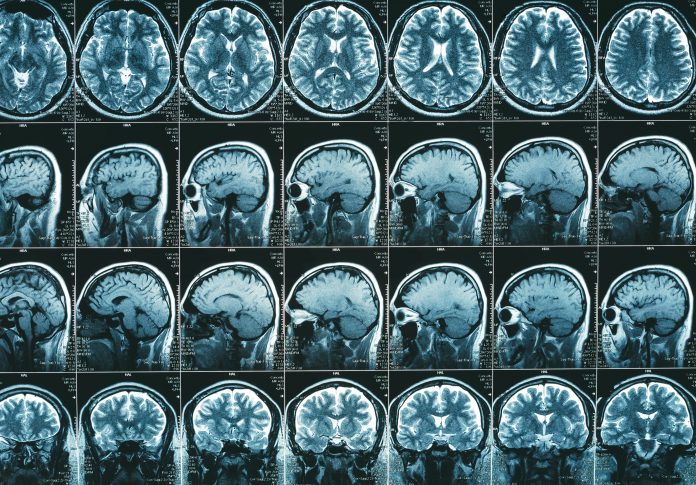The role of big data in health from the perspective of the European Commission is detailed here, as well as its potential for the future for mental health in Europe
By way of an introduction, the responsibilities of European Commissioner for Health & Food Safety, Vytenis Andriukaitis, European Commissioner for Health & Food Safety include building up knowledge on the performance of national health systems in Europe to shape national and European Union policies.
Another is to rise to the challenge of increased calls on national health services during a period when public finances are under intense pressure. (1)
The potential of big data in healthcare
A recent prominent theme coming from Commissioner Andriukaitis is big data which is well worth a look at in some detail. In his view, big data, “has the potential to unlock important new prevention, diagnostic and therapeutic avenues”. While innovation is now linked even more with the use of big data, challenges in this area remain, as Commissioner Andriukaitis explains.
“Big data does come with its own challenges – especially fragmentation. The Commission’s 2018 Communication on digital health and care recognised these obstacles.
“It focuses on fostering EU coordination in this area, so that the quality and security of big data, as well as access to it, can be improved. How will this benefit citizens? eHealth solutions have the potential to better understand health conditions and to strengthen health capacities.
“mHealth tools can contribute to promoting good health; preventing diseases; and enabling early detection of health problems.” (2)
In another recent speech, Commissioner Andriukaitis underlines the increasing acceptance of big data, a fascinating point he goes on to explain in his own words.
“Whether it be pools of sequenced genomes, or real-world environmental and lifestyle data, it is clear that access to larger samples will facilitate more effective, deeper, more targeted research.
“The need to share relevant data more broadly led to the launch of the European Open Science Cloud. This pilot project is funded by Horizon 2020 and is a big data demonstrator scheme. It includes pan-cancer analyses to identify common mutation patterns for better care.”
In the same speech, Commissioner Andriukaitis notes that in November 2017, the European Commission published a call on the use of big data and artificial intelligence (AI) in order to establish better cancer care. Also, earlier in 2017, a call on risk-based screening was published by the European Commission. (3)
Big data in mental health: Endless opportunities?
We know that mental health is just one part of Commissioner Andriukaitis’s remit. Certainly, in the 2018 Health at a Glance: Europe joint report of the European Commission and the Organisation for Economic Cooperation and Development (OECD) underlined the need for improvements in mental health and preventing mental illness.
It’s quite interesting then to link mental health to big data, indeed, in the view of MQ: Transforming mental health, the potential for harnessing big data in mental health has not yet been met. In a blog on their website, we learn that breakthroughs for treating and understanding conditions such as cancer have been transformed by harnessing the power of big data. They explain more about this interesting development in their own words.
“Treatments are most effective when they are delivered to the right people, at the right time, in the right way. Currently, we don’t know what mental health treatments will work for whom, and this wastes valuable time, money – and most devastatingly, lives.
“Big data could be the key to changing this, creating personalised care for people facing a mental illness.
“Researchers are increasingly recognising its potential for improving conditions like bipolar disorder, schizophrenia and depression – you only have to look at MQ’s recent data science awardees (4) to see the kind of impact it could have.”
We then discover that mental illnesses are not easy to understand, categorise and communicate. Certainly, those living with a mental health condition often have to wait months or even years before obtaining a diagnosis that is right for them and as such, they do not receive the treatment they need. Let’s see some of MQ: Transforming mental health’s thoughts now about the potential of big data in the area of mental health, including in depression.
“Big data could change this, by using large sets of data we can identify patterns that are otherwise hidden and hard to detect – machine learning can identify biological causes, different medical signs and symptoms and link them more accurately to a diagnosis.
“Adam Chekroud and colleagues have also looked into the effectiveness of antidepressants in a 2016 study focusing specifically on one called citalopram. They identified 25 variables that could be used to predict treatment outcome and developed a tool that successfully forecasts whether or not someone would respond to the drug. Whilst it worked for citalopram, it didn’t work for other drugs – a lesson in itself.”
While studies concerning the relationship between MRI scans and how well an antidepressant works for someone have taken place, there is clearly much potential in the future when it comes to big data in mental health. One challenge is that most studies have been difficult to scale and another, is funding. Let’s end the article with some additional thoughts from the charity, MQ: Transforming mental health.
“If utilised properly, big data could enable us to identify risk factors for mental illness, get people the right treatment for them, track how well people improve and even investigate how we could prevent mental health conditions from developing.
“Big data shouldn’t be a futuristic add-on to the treatment of mental illnesses – but an intrinsic part of how we understand it. With the right approach, the opportunities are endless.” Certainly, it looks like big data is set to play an important role in national health systems in the future.” (5)
References
(1) https://ec.europa.eu/commission/commissioners/2014-2019/andriukaitis_en
(2) https://ec.europa.eu/commission/commissioners/2014-2019/andriukaitis/announcements/speech-commissioner-health-and-food-safety-vytenis-andriukaitis-international-association-mutual_en
(3) https://ec.europa.eu/commission/commissioners/2014-2019/andriukaitis/announcements/speech-commissioner-health-and-food-safety-vytenis-andriukaitis-conference-mission-oriented-approach_en
(4) https://www.mqmentalhealth.org/news-blog/post/mq-funds-four-data-science-projects-to-tackle-major-challenges-in-mental-health
(5) https://www.mqmentalhealth.org/posts/what-can-big-data-do-for-mental-health-treatment
Open Access Government
editorial@openaccessgovernment.org
www.openaccessgovernment.org
https://twitter.com/OpenAccessGov











